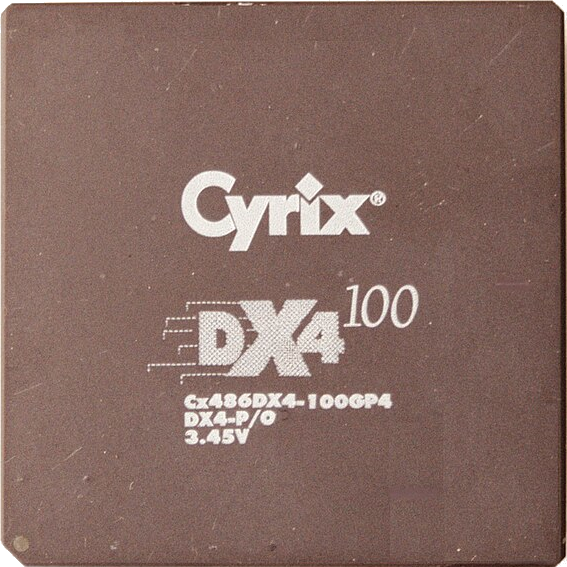I’m thinking of the things listed on the Privacy Guides real-time communication section
The difficulty of any non-mainstream chat app is getting other people to use it. On that list, Signal is the most probable to be recognized by people who don’t have a particular interest in privacy, so it’s more likely to get more people to use it.
besides that, and besides the lack of forward secrecy on matrix and session already mentioned by privacy guides, do some of these alternatives have worse security, privacy, or ux than signal in some way?
both have worse UX than Signal. pretty much all except Signal are lacking on this front. OSS developers are allergic to a smooth UX in general
This is the complete and sad truth 🤣
Signal’s UX is NOT good unless you want to expose your encrypted conversations to a smartphone (of which far from all can run a private OS). All because of no desktop registration. You either have to use inconvenient signal-cli, or an Android emulator which creates its own troubles.
xmpp has a variety of clients for desktop and mobile. You cannot dismiss them all as having worse ux than signal.
The same is true for matrix.
Signals UX is no better than SMS apps. People I’ve tried to convert all say the same thing.
~~But it’s still the most secure/privacy minded messenger. ~~
Signal has read receipts, reactions and typing indicators. That’s 90% of what any messenger needs. It also let’s you schedule texts. I do wish it would do reminders and pinch to resize text though.
false
Dunno, it’s fine for me. As a messenging app it moslty gets out of my way and lets me communicate. It has all of the important functionality and creature comforts. Also, it already has some bloat (stories, whatever that crypto payment thing was/is). And the UI / UX is perfectly fine as is.
Although, as a dev myself, I hate UX work, it’s just boring and unfulfilling. I get why UX is often an afterthought. First it has to be functional, anything beyond that is secondary.
deleted by creator
deleted by creator
Matrix also does have a pretty big problem with meta data. By default it stores a ton of meta data (at least the reference server implementation does) and I am not sure if this is even a solvable problem without redesigning the protocol. When opting for an alternative to Signal, XMPP is probably the better choice.
and how are they ordered in popularity?
That’s a good question. I wonder if there are available user numbers for them.
I imagine it’s regional and depends on what communities you are in. SimpleX chat seems pretty popular these days in privacy circles but I could see something like Briar being useful if traditional networks weren’t reliably available for example.
Why is Session always mentioned ? It’s an Australian company, in a land with zero constitutional oversight I’d be more inclined to think its a honeypot then a privavy focused chat app. Anom springs to mind as an example.
You should not trust any company or organization. What matters is the security and privacy or the app and service.
What’s your use case? Likeminded techie friends? Family members?
Signal works well as an alternative to the likes of Telegram and WhatsApp, even if it still requires a phone number and is centralised. Far easier to explain to the family instead of “oh well you can sign up on this website or this website or that website”.
Granted, if you want to host a small Matrix server just for the family, then go for it.
It doesn’t require a phone number anymore.
Edit: I was wrong. :p
As far as I know Signal still requires a phone number to register an account. Since a while you can use usernames to connect with others instead of exchanging phone numbers.
The username release is quite recent for those not participating in beta versions of Signal.
Ohh, I wasn’t aware that it was still necessary for registering.
The major one that concerns me is who is behind them. Even if we trust that their encryption is not backdoored, there is a lot of information that can be gathered just from the frequency of messages and who they are between.
If it came out that a three letter agency was running one of these networks, it would not suprise me at all.
The only fix for that is for nobody to communicate, ever.
deleted by creator
Exactly this. Everybody should be aware of their threat model.
The US military uses Signal for communication
deleted by creator
Well no, but it is used for personal communication
I feel like a lot of the military probably uses Facebook messenger because of the convenience.
I imagine everyone is creating groupchats and assuming other people use Facebook just like pretty much every other job.
Secure in the milliary is actually pretty important. You don’t want to accidentally leak troop deployments
Totally but people do get careless. We’ve seen it a few times with the war in the Ukraine. /r/VolunteersForUkraine is a good example of that.
I imagine it could be difficult stressing the importance of it to loved ones.
I mean, windows is so…
deleted by creator
Yeah but you cant really obfuscate your message destination and timing without using onion routing, and really thats just making it more expensive to compromise and run. That said other things here do make it seem like a honeypot…
Its fully open source though, even the server. Might not be that hard to fork it and let people host their own servers.
deleted by creator
Lots of rumors, very little evidence.
There’s a lot of really bad stuff on Tor. Like, really bad; probably worse than you’re imagining. Things that make the old rotten.com stuff look like a child’s birthday party. If Tor was actually compromised, the people creating and uploading that stuff would be grabbed quickly. Instead, LEAs have to cooperate globally and run long-con sting operations in order to identify people in order to bust them. Most of the time, they’re busting people that use Tor due to social engineering or one kind or another, and the remaining times it’s because someone fucked up configuration on a site.
If everyone gets busted all at once (2022-2024 market takedowns is as close to that as it could come IMO) then everyone immediately stops using tor and starts using i2p or freenet or whatever system they may not have broken yet. That’s baaahd for business, said the wolf in sheep’s clothing.
Although they did run a cp site for months before shutting it down, so they’re clearly not opposed to the long-game, especially if it involves national security (it does.)
Freenet was never really anonymous; there have definitely been busts from Freenet. IIRC it’s distributed, but not anonymized; I haven’t really done anything with it in ten years or so. i2p is probably pretty solid, but it’s often very difficult to use. I’ve tried it, and most of the time couldn’t make configurations work. Or else the eep sites I was trying to reach were offline. IDK.
I dunno; given that Tor was originally designed to be extremely difficult to track, and was designed by spooks, it’s plausible that they aren’t able to crack their own security. If they controlled enough of the network, they could, in theory, track individual users. But it would be extremely resource intensive, and they would already have to be targeting you.
IIRC, the case you’re talking about involved social engineering to gain admin privileges, then illegally hacking computers through malicious javascript to leak their real IP. IIRC a huge number of the cases ended up getting thrown out because there was no way they could legally do what they did, and the convictions they did get were ones that they would have been able to get without the illegal hacking. That was, what, something like ten years ago? Around the time that The Silk Road got taken down? (That was taken down because the site owner used the same username both on the Silk Road and on a clearnet site; he essentially doxxed himself.)
What I’m talking about wrt tor is traffic shaping or node DoS leading to a Sybil attack. When the (state)actor has the ability to drop all packets from you to NON attacker-controlled guard nodes, and then once you’re connected to a dirty guard, drop all connections to non-controlled relay and exit nodes, it’s done. There’s also an ongoing DoS attack that is able to make any guard/entry/relay/exit use 100% CPU making them unusable and it’s been going on for months now. You can see it on the tor forums (relay-operators) and someone posted about it in more detail on the monero subreddit the other day.
Oh, yeah, I’ve been seeing that a lot of it has been really dragging for, like, the last year or so.
Yes, if a state-level actor is able to get control of all the nodes, then everyone is pretty much fucked. I suppose that, with enough nodes, you could make that kind of attack really, really hard. I’m also guessing that Monero transactions are taking a really long time right now to go through? I saw that the Finnish (?) gov’t claimed to have ‘broken’ Monero, but they’re not giving any technical information about their claims, and most current speculation is that they busted the guy doing other shit that they were able to trace link to Monero transactions. (I don’t really keep up with Monero; last I knew, there wasn’t a good wallet that didn’t require downloading the whole blockchain, and my home internet is slooooooooooooow.)
I’ve had good fortune converting some family and friends to use XMPP.
People always mention fragmentation, and while there is some truth to it, it can be massively minimised by choosing blessed clients and servers for them to use.
In my case, I run my own server, and thoroughly test the clients (especially the onboarding flow) that I expect them to use, so that any question they have, I can help them out with quickly. Since we’re all on identically configured servers, it minimises one whole class of incompatibilities.
There is still unfortunately a bit of a usability gap compared to Signal - particularly on the iOS clients. But they have come a long way and are consistently improving.
You can host Simplex server and clients
deleted by creator
I’m using Matrix/element. I rather not give my phone number, you see, which is must-have for Signal. I have installed the app in my family’s phones, and they were accepting, so all is well. I don’t need to communicate through private messaging with anybody else, so who cares if others don’t use matrix?
Yeah, about that. https://www.signal.org/blog/phone-number-privacy-usernames/
That’s my point. The phone number IS STILL required to create an account at Signal!
I see.
You can always run a self-hosted version of Signal or a fork of it, then you can do whatever you want with it, including not using phone numbers.
I’m not interested in running servers, in fact, my ISP doesn’t allow it anyway. I need something private that doesn’t ask for too much info off of me, and that’s why my solution was matrix, and not signal.
most people don’t run servers from their house, but something like a cheap VPS or similar.
Wait, what?! You can self-host Signal? Please send me a guide!
You can. But you’re not going to. Signal isn’t federated. Not only do you need to self host your own server, you need to build your own clients, and then have everybody you want to talk to using your specific clients talking to your specific server.
Ah, yeah, of course :/ Will stick to my own XMPP server then.
I think Signal rolled out a username system that should let users communicate without having to share phone numbers
You still have to register initially with a phone number to be able to setup a username.
Signal isn’t federated. Signal has centralized servers. Signal requires phone number identification to use it. Signal stores your encryption key on their servers… Relying on sgx enclaves to ‘protrct’ your encryption key.
Signal can go down. Signal knows who you talk to, just by message timing. Signal knows how frequently you talk to someone. Signal can decrypt your traffic by attack their own sgx enclaves and extracting your encryption key.
These are all possible threats and capabilities. You have to decide what tradeoff makes sense to you. Fwiw I still use signal.
Signal stores your encryption key on their servers…
That would surprise me. What’s your source for this?
So my takeaways from this link and other critiques has been:
1.Signal doesn’t upload your messages anywhere, but things like your contacts (e.g. people you know the usernane/identifier, but not phone number of) can get backed up online
One challenge has been that if we added support for something like usernames in Signal, those usernames wouldn’t get saved in your phone’s address book. Thus if you reinstalled Signal or got a new device, you would lose your entire social graph, because it’s not saved anywhere else.
2. You can disable this backup and fully avert this issue. (You’ll lose registration lock if you do this.)
3. Short PINs should be considered breakable, and if you’re on this subreddit you should probably use a relatively long password like BIP39 or some similar randomly assigned mnemonic.
If an attacker is able to dump the memory space of a running Signal SGX enclave, they’ll be able to expose secret seed values as well as user password hashes. With those values in hand, attackers can run a basic offline dictionary attack to recover the user’s backup keys and passphrase. The difficulty of completing this attack depends entirely on the strength of a user’s password. If it’s a BIP39 phrase, you’ll be fine. If it’s a 4-digit PIN, as strongly encouraged by the UI of the Signal app, you will not be.
4. SGX should probably also be considered breakable, although this does appear to be an effort to prevent data from leaking.
The various attacks against SGX are many and varied, but largely have a common cause: SGX is designed to provide virtualized execution of programs on a complex general-purpose processor, and said processors have a lot of weird and unexplored behavior. If an attacker can get the processor to misbehave, this will in turn undermine the security of SGX.
One nit to pick, messages have to transit through the signal network. And they could be recorded during transit. Carnivore style
True, but that’s more or less out of the scope of this thread. I could go on for way longer about centralized versus federated services…
master_key is never stored or sent to the SGX, only c2, the entropy bits. The user’s password is still required to generate the key.
Brute forcing 4-6 digit pins is trivial.
And even if the user set a actual password, it’s still very trivial
“Very trivial” if they set a proper password? Yet the source you provide says it’s robustly secure
I can’t find the phrase robustly secure in the last link:
Signal asks users to set a pin/password which needs to be periodically reentered. This discourages people from using high entropy passwords like BIP38.
The password is literally a pin
If you set a small pin, perhaps. Most people set a password
Pin is the suggested option, so I really doubt “most” of the people choose password
Most people who care* I guess would be more apt
Many assertions without any proof. Could you at least point out the sources for such statements?
https://github.com/dessalines/essays/blob/main/why_not_signal.md
Also, most of the points of the message you replied to are abstract and don’t need any citation. Like do you want source for signal being centralized or for signal having ability to track you?
Everything in that post makes perfect sense; the proof is in knowing how these systems work, Signal’s source code, and details from Signal themselves. I can go into more detail on each point when I’m at a computer; my phone kills processes in a few seconds when I try to multitask which makes it nearly impossible to write long posts on mobile if I have to go back and forth to copy and paste. Is there any claim in particular you want details on as to why it’s reasonable, or shall I just do the lot? Edit: Ah, OP got it, nevermind!
Also, I should point out that I use Signal pretty much exclusively for messaging. This isn’t hate, I’m just aware of its weaknesses.
Read the post by signal. Note the use of the word “plaintext”.
we don’t have a plaintext record of your contacts, social graph, profile name, location, group memberships, groups titles, group avatars, group attributes, or who is messaging whom.
Whenever someone qualifies a statement like this, without clarifying, it’s clear they’re trying to obfuscate something.
I don’t need to dig into the technical details to know it’s not as secure as they like to present themselves.
Thanks. I didn’t realize they were so disingenuous. This also explains why they stopped supporting SMS - it didn’t transit their servers (they’d have to add code to capture SMS, which people would notice).
They now seem like a honeypot.
They are very much not. Anyone who tells you this is a state influencer or someone who believed a state influencer.
Saying something has the capabilities of a honeypot, is the correct thing to do when we’re assessing our threat model.
Is it a honey pot? I don’t know. It’s unknowable. We have to acknowledge the the actual capabilities of the software as written and the data flows and the organizational realities.
My concern is people stay away from Signal in favor of unencrypted privacy nightmares. It happened with DDG a while back where I knew people who used Google because DDG had privacy issues. It sounds dumb but it is a true story.
Sure. I still encourage people to use signal. Most people don’t have a threat model that makes the honey pot scenario a viable threat. In this thread we are talking about its downsides, which is healthy to do from time to time. Acknowledging capabilities is a good exercise.
excuse me what? signal can extract your encryption key how exactly?
They have your key In a SGX enclave. You only need to look at the rich history of side channel attacks, known SGX critical vulnerabilities, or just the fact that Intel can sign arbitrary code, which can run in the enclave, which means they can be compelled to with the cooperation of the government
https://dl.acm.org/doi/fullHtml/10.1145/3456631
I’m not saying they do, but they have the capability, which needs to be accounted for in your threat model.
At the end of the day, people are entrusting their encryption keys with the signal foundation to be stored in the cloud. That needs to be part of the threat model.
i read some of your other comments too. this is insane. I’ve always hated signal but this is another reason on top. No wonder the CIA funded them for 10 years.
Signal is still secure. If it wasn’t it wouldn’t be used in Military applications.
Secure within the context of a certain threat model.
The French government does not endorse signal for government communication as an example
And I would highly suspect the Russian government would not use signal either.
I cite both of these as examples of threat models that can’t ignore some of the potential capability of the signal.
In the US government organizations are trying to protect themselves from each other and themselves. (Its messy)
Not to say that Signal is perfect (its not) but if the DoD recommends it and has guidance on how to harden it then it can’t be to bad.
Let’s not forget that for those looking for alternatives, a key feature of signal is/was its SMS integration.
I use silence, a fork of signal.
- upside: it can still send and receive SMS messages!
- downside: nobody else uses it, so it only does SMS as a result.
For those who don’t remember, not only could signal be used for SMS, it used to be able to do encrypted sms convos.
Also it sadly hasn’t been maintained for years
The need to wait for an SMS to register a new account and the potential for recaptcha loop (which I have experienced) is a serious downside to Signal. Something I never need worry about with xmpp, matrix or threema.
Downsides of Signal alternatives compared to Signal?
I guess that anything out there performs better and faster syncs than Signal… so much for the great Signal.


















